Hunter's illness
Just months after my snooker star husband felt pains in his side he was dead
By LINDSAY HUNTER
www.worldsnooker.com
During May 2004, I married my Prince Charming in a fairytale wedding in Jamaica. I'd met Paul Hunter seven years before when he was just an 18-year-old kid who played snooker.
Now he was dubbed the "Beckham of the Baize" because of his chiselled good looks and long, blond hair. At just 25, he'd won his third Masters title, a feat which, at the time, had been achieved by only two other players.
As I wrote in my diary a short while later, "Paul and I are so in love, so happy, with no worries. We must be the luckiest people alive."
But towards the end of the year, Paul started to suffer from intermittent pains in his side. By the beginning of 2005, the pain was constant so he went to see his GP, who referred him to a consultant fearing appendicitis.
An abdominal scan revealed that Paul's appendix was fine, but there were six cysts in his abdomen. The consultant performed a laparoscopy, an outpatient procedure where the abdomen is pumped with gas and a biopsy taken.
It showed that the cysts were, in fact, tumours - and they were malignant. The treatment was to be chemotherapy: ongoing cycles of three sessions of three days each.
I remember coming home from the hospital with him the day they had broken the news.
Paul was as white as a sheet. That night, when we were alone, he asked me all the questions he hadn't asked in the hospital. It had all been too much to take in. He said: "Lindsey, do I have cancer?"
How do you answer that? I took his hands in mine, looked him in the eye and softly said: "Yes babes, you do." He looked like a frightened child. I rubbed his hands and held him as I whispered: "We'll get rid of it, you wait and see."
I remember him saying years earlier that he would get cancer. One of those adverts came on the telly - the ones where they say that one in three people will get cancer - and Paul said: "That's me. I'm going to be one of the one in three." It's strange to think of it now.
Two days later, Paul left for the China Open. It had been arranged months in advance and as he would be away just over a week he wanted to carry on as normal.
Amazingly, he reached the final eight, and when he got back at the beginning of April, we had our first meeting with the cancer specialist.
He wasn't sure what type of cancer Paul had. He suspected either a type of germ cell tumour - the kind which occur in testicular cancer, and which are relatively easy to treat with a success rate of over 90 per cent - or neuroendocrine tumours, a type of cancer with a much poorer survival prognosis of about one in three.
A subsequent scan ruled out a germ cell cancer, and the consultant broke the bad news that neuroendocrine tumours were the most probable diagnosis. He showed us the films from the laparoscopy.
It looked like there were 200 tumours, not six. They looked like Maltesers when they melt and stick together - huge masses of disgusting lumps inside the abdominal cavity.
Paul said it made him feel sick knowing what was inside his body. I went into autopilot, asking questions, taking notes.
But I was in a daze. Shocked. Tumour, cancer, malignant, chemotherapy - they are such awful words that it is hard to make the connection between them and what they will do to the person you love.
It was agreed that Paul would start his first course of chemotherapy after the 2005 World Snooker Championships, which began in Sheffield two weeks later. We both agreed he should continue competing for as long as he could, to take his mind off things.
In a fairy story, Paul would have won. Real life isn't like that though - he lost 10-8 in his first match. Everyone knew about the cancer and it was very emotional for Paul, leaving the hall to a standing ovation, wondering when he would be back.
By a strange twist of fate, after trying for seven months, I found out I was pregnant two days before the start of Paul's chemotherapy. Neither of us really believed it.
Our baby had chosen the most unlikely time to make its entrance into our world. We saw it as our lucky charm, the ray of light that would make the darkness bearable.
On April 27, Paul began his first course of chemo. He was to be treated with the drug combination BEP, Bleomycin/Etoposide/Cisplatin.
Alpha Feta Protein (AFP) blood tests are used to detect certain cancers. The higher the score, the bigger the tumour.
AFP levels should get back down to normal after chemotherapy but if they don't, that means the tumour hasn't completely gone.
In a healthy, non-cancerous person, the level is tiny, somewhere between zero and five for most. Paul's AFP tumour markers were 24,000 at this stage.
We were to become obsessed by these figures. They became the guide as to whether we should be celebrating or not.
When I saw him in bed that first day, wearing his cold cap, a kind of high-tech crash helmet that helps against hair loss, it hit me. This was real. This was actually happening.
He looked so vulnerable. He said that the first hour wearing the cap was horrible, that he felt his head was going to explode, but after that his scalp went numb.
Three days later, Paul came home. His face was so bloated it looked like it had been inflated with a pump. His legs felt dead and heavy and he'd put on a stone-and-a-half in three days with all the liquid that had been dripped into him.
That first night wasn't as straight forward as I'd hoped.
I thought he would just sleep, but he was up a night feeling sick and I couldn't drop off because I was so worried.
A few days later there was another set back. He had a tooth infection and had to be hospitalised so he could be put on a antibiotic drip. I'd just got hom from visiting him when he called me. "Can you come in, Linz?" he said, his voice cracking.
"Straight away?" I asked, trying to keep calm.
"Yeah. And bring the clippers - my hair's coming out in clumps."
Despite the hair loss, Paul was actually quite chipper by the time I got there, because he'd had some good news.
Not only was he able to come home because the intravenous antibiotics had done their job, but his tumour markers were down to 13,000.
The specialist told Paul that he would have been happy with those figures after the second cycle of chemo, never mind the first.
The first two cycles of chemo went well. His markers fell to 590 in the last week, and a CT scan showed that most of the tumours had disappeared. The specialist raised the possibility that it might be germ cell tumours after all.
The good luck continued. By July, the beginning of Paul's fourth chemo cycle, the markers were down to 34 - and had fallen to 18 by the end of it.
But the side-effects from the fourth session were awful.
Paul was too ill to attend his sister's wedding in Cyprus. That was one of our worst days so far.
While she was getting married thousands of miles away, Paul was sick 30 times in 36 hours. He had severe thrush in his throat from all the vomiting and emotionally was the lowest I'd ever seen him.
I could hear him in our bathroom trying to be sick yet again, but there was barely even any saliva left.
Then I heard the sobbing. "I'm so tired of this," he said. "But you're winning, babes, you're winning," I told him.
"Does this look like I'm winning?" he asked, between great gulps of tears. I didn't want to look. But I did.
He was a shadow of himself. He had no hair. He was grey. His eyes were sunken. He had lost weight but was bloated, too. His hands and fingers were numb. He was freezing but sweating.
One side of his face was swollen and the eye was bloodshot from the sickness. His veins were wrecked and I could see needle marks all over him.
I thought back to our wedding day, only a year before. Paul had looked so handsome and I'd been so proud. His hair was long and he looked golden and perfect with the sun shining behind him.
I couldn't help myself - I started crying. We sat there, together, in the bathroom and cried and cried. All the fear and relief and panic and hope came together in one burst of emotion.
At the end of the fourth cycle we went to Rhodes on holiday. It was like a second honeymoon, and in many ways we felt as though the baby was already there - Paul would rub my tummy all the time and talk to it every day.
We had an appointment with the specialist when we got back. We were in for bad news. The blood test taken just before we left showed Paul's markers were back up to 5,000.
More chemo was on the cards, though it would have to be a different type because Paul's body was now immune to the first combination of drugs.
He was devastated. He wept as if the world was coming to an end. I couldn't take it all in. I just hadn't seen this one coming.
Paul began the chemo in September. Drugs were to be administered every three weeks right through to January 2006.
Every treatment seemed to get harder than the one before.
His feet got very cold this time round and he had to wear thermal socks all the time.
Also, he had no eyelashes left, so he often got tiny specks of dust in his eyes, which I had to help him remove. Of all the things you take for granted, you never think about eyelashes - until you don't have them.
The snooker season started up again, and on October 9 Paul bravely turned up to play at Preston Guild Hall. During that entire 2005/06 season he didn't miss a match, even when he was turning up at the table with no feeling in his fingertips, no hair, stomach pains, wearing his thermal socks and getting thinner by the day.
In November, halfway through the cycle, we had the all-important meeting to find out what his tumour markers were. The level was down - but only to 2,200.
When the doctor said that Paul should still continue the chemo through December, I winced. How much could one person take?
Physically and mentally, Paul was falling apart before my eyes. It was dreadful. I felt helpless.
The Christmas holiday brought some respite. On December 26, Evie Rose was born. In the middle of all the darkness and fear of death, all the pain and worry, we had created a new life.
For the first week after the birth, the three of us did everything together and barely left the house. If I could get that week back, I'd be the happiest person in the world.
But on January 3 there was more bad news from the specialist. The chemo had stopped working. It was keeping Paul's tumour marker level stable, but not reducing it. There was no point in doing another cycle.
"What will we do instead?" I asked, my throat feeling tight. The specialist seemed embarrassed that they had run out of options. "Let's keep an eye on things for the next few weeks," he said.
I was alarmed. I decided to research alternative treatments and lifestyle changes that might help. Steve Davis, the snooker player, told us that a relative of his diagnosed with cancer had used Essiac tea to help cure him.
Made from burdock root, sheep sorrel, turkey rhubarb root and slippery elm bark, the tea is a Native American remedy, rediscovered by a Canadian nurse 70 years ago.
I followed the recipe carefully - it took me ages to make - but unfortunately Paul couldn't stand the taste of it.
In April, the specialist suggested it was worth trying Paul on another course of chemo - this time a combination of oxaliplatin and capecitabine. But it caused horrendous vomiting.
Then on June 27, there was a real setback. Paul woke feeling dreadful. He was clutching his side and moaning: "Linz, it's back."
The next blood test confirmed it: his markers were up to 40,000. A scan showed that his tumours had started to grow.
The doctors decided to treat him with yet another cycle of chemo, but I could see they were clutching at straws. Paul lost a lot of weight that summer and began to feel ill almost constantly.
At times, he could barely lift his head from the sofa.
His abdomen became so swollen he looked pregnant. He couldn't sleep for more than an hour at a time and he was so sick he had no appetite at all, even when I tried to tempt him with favourite foods like bacon sarnies.
On top of this, his skin was grey and painful, so often I couldn't even hug him. After that cycle, Paul's markers continued to shoot up. Our options had pretty much run out. In both September and October, Paul was admitted to hospital with dehydration caused by excessive vomiting.
When I visited him the second time, I got a huge shock because he was in a wheelchair. His eyes were sunken, his skin was pale and stretched over his face and somehow his teeth looked bigger in his skull.
"Lindsey, I'm dying," he said. "I know, darling, I know," I replied and he just stared at me.
It was the first time I hadn't said: "You'll be all right." I think he was relieved when I explained he was going to a hospice. He'd had enough. All he wanted was a good sleep.
Paul died at five to eight on the evening of October 9, five days before his 28th birthday, surrounded by his family. I could tell straightaway that he'd gone.
No one cried. There was this spooky calm. I carefully removed his diamond stud earring. I'd been wearing the other one of the pair since the day he went into hospital. I also put on the white dressing gown he'd been wearing for the past few months because it still smelled of him.
The funeral was held on October 19. The turnout was huge. I wrote on his funeral bouquet: "Paul, you are and always will be the only one. You have my heart."
I can't even begin to say how much I miss him, but the love we built together was so strong that it will live on for ever.
I want to thank him for Evie. For the life he left us with. For the friends he gave me. For the memories and for the things that are still happening because of him.
I'll hold his love in my heart for as long as I live and I wish I could say to him that even if I knew we had to go through it all again: "I'd still pick you, babes. I'd still pick you."
• Unbreakable by Lindsey Hunter is published by HarperCollins, priced £12.99. If you would like to make a donation to the Paul Hunter NET Patient Foundation, visit www.netpatientfoundation.com or call 0800 434 6476.
A CHAMPIONS FAREWELL
20 October 2006
TEARS FOR PAUL HUNTER
By Jan Disley
the Mirror
IT was Jimmy White who broke down first.
As the coffin carrying Paul Hunter passed in front of him, The Whirlwind could not hold back the tears.
Beside him Ronnie O'Sullivan, his eyes red and raw, bowed his head.
One by one, the greats of snooker said their final farewell to one of the sport's shining stars - taken from them at the absurdly young age of 27.
Willie Thorne dabbed at his eyes and Steve Davis stared solemnly as Paul's wooden casket was carried by six men wearing the snooker uniform of black suits and black bow ties.
Among the pallbearers was Paul's close friend and fellow professional, Matthew Stevens.
Paul's widow Lindsey followed the coffin into the church while their 10-month-old daughter Evie, dressed all in pink, was carried in a black baby seat by an undertaker. Up to a thousand family, friends and fans gathered at Leeds Parish Church yesterday to pay tribute to the man they called the "Beckham of the Baize."
The front pews were packed with all the biggest names in the sport - including Dennis Taylor, John Higgins, Graeme Dott, Joe Johnson, Stephen Hendry, Peter Ebdon, Ken Doherty, John Parrott and Shaun Murphy.
Snooker legend Alex "Hurricane" Higgins - who has fought a long battle with throat cancer - was also there to pay his respects.
Lindsey, 27, read a touching poem written in tribute to Paul, who died at a hospice near his home in Huddersfield, West Yorks, after a 19-month fight against cancer.
She read: "He played the game that he loved, he played with passion so rare, and all of the crowd that saw him were privileged because they were there.
"So if you stood at the great gates of heaven with one look that you would understand, for amongst a great host of angels would be one with a cue in his hand."
Outside the church, hundreds of men, women and children lined the streets to hear the service relayed on loud speakers. Afterwards, former world champion O'Sullivan had to be comforted as he collapsed in tears.
Willie Thorne said the presence of so many stars showed the love and respect that everyone in the sport had for Paul, who was three times Masters champion.
He said: "He's going to be so sadly missed. He was a great winner and a great loser. You admired him so much. Ninety-nine per cent of the players have come to pay their respects. It just shows what the world thought of Paul Hunter."
Balding Willie told how Paul never lost his sense of humour even in the midst of his cancer treatment. He added: "He used to say, 'I don't mind the chemotherapy as long as I don't end up looking like Willie Thorne'."
Dennis Taylor said: "Paul just stood out a mile. It's a dreadfully sad loss. He would certainly have been a world champion that's for sure."
Paul's cousin Tony Roberts also paid a touching tribute. He said: "Paul was a fighter through and through. He gave us everything, his generosity, his looks, his hairstyles - and, above all, his strength and determination."
During the service Sir Rodney Walker, World Snooker Chairman, described the star as "inspirational".
He said: "He had a calmness under intense pressure that separates the great from the good."
Sir Rodney said Paul's image was glamorous and his charisma and flamboyant approach made him one of snooker's biggest draws.
He added: "But there was not a pretentious bone in his body. He wanted to give something back to the fans who put him where he was."
TRIBUTE TO A CHAMPION
There's one bright star in the heavens tonight and oh how it shines for all to see,
For this star is special, it has a smile and laughter for now it is free,
Free from all pain and sorrow, his battle for life has ended,
For it has a new tomorrow and its body is now fully mended,
It's not just a star in the heavens where it shines so brightly and proud,
For this star on earth was a champion and, oh, how it thrilled all the crowd,
Now this star was blessed with a talent as only the best star allowed,
So be grateful if you ever met him and if you were his friend and be proud,
He played the game that he loved, he played with passion so rare,
And all of the crowds that saw him were privileged because they were there,
So if you stood at the great gates of heaven with one look that you would understand,
For amongst a great host of angels would be one with a cue in his hand.
Safe with the Lord now Paul, God bless you.
SNOOKER MOURNERS GATHER FOR FUNERAL
19 Oct 2006 15:42:00
www.worldsnooker.com
Pallbearer Matthew Stevens and many other leading snooker players were at Leeds Parish Church today for Paul Hunter's funeral.
Ronnie O’Sullivan, Stephen Hendry, Steve Davis, Jimmy White, Ken Doherty, John Higgins, Mark Williams, Ryan Day, Dennis Taylor, John Parrott, Willie Thorne, John Virgo, Joe Johnson, Alex Higgins, Joe Swail, Michael Holt, Stuart Bingham, Mike Dunn, Peter Ebdon, Shaun Murphy, Jimmy Michie and Stevens, Hunter’s closest friend on the circuit, were among those who gathered in Yorkshire to pay their respects to the three-times Masters champion.
Hunter’s battle against cancer came to an end last week, five days before his 28th birthday.
His coffin and a book of condolence was brought to the Church on Tuesday. Widow Lindsey was the first to sign the book and thousands of fans have since followed suit.
Reverend Canon Tony Bundock, Rector of Leeds, gave the service at the funeral. Among those to pay tributes were Hunter’s father Alan and World Snooker chairman Sir Rodney Walker.
Willie Thorne said outside the Church: "I’m deeply saddened. He’s just going to be so sadly missed. He had a great personality, you never knew whether he had won or lost.
"I admired the kid so much, he battled so very hard these last two or three years."
Dennis Taylor added: "Paul just stood out a mile. He was just so good for our game. It’s just a dreadfully sad loss. He would have certainly been a world champion, that’s for sure."
A minute’s silence will be held in Hunter’s honour at 11.45am on Saturday at the start of the Royal London Watches Grand Prix.
Hunter loses battle with cancer
Paul Hunter has died at the age of 27 after a battle with cancer.
10 October 2006
The Leeds player was taken into the Kirkwood Hospice in Huddersfield last Friday and died on Monday evening.
The three-time Masters champion was diagnosed with dozens of neuro endocrine tumours on the lining of his stomach in March 2005.
Hunter would have been 28 on Saturday. He leaves a wife, Lindsey, and a daughter, Evie Rose, who was born on Boxing Day of last year.
Former world champion John Parrott was among the first to pay tribute.
"Paul certainly brought a touch of glamour to the game - they called him 'the Beckham of the baize'," Parrott told BBC Five Live.
"And his performances at Wembley were fantastic. To win three titles was tremendous.
"He was a happy-go-lucky man, always played with a smile on his face and never had a bad word to say about anyone."
Stephen Hendry, the seven-times world champion, added: "I'm absolutely devastated by the news.
"He's got a young family and he had a fantastic future in front of him. It's everyone's worst nightmare and puts everything into perspective."
Willie Thorne, a BBC commentator and former professional, said: "Deep down I think we all thought he was going to beat the disease.
"He was one of the best-looking snooker players we ever had and had a heart like a lion.
"He lit up the stage when he played, was a very flamboyant player and there will be a big hole in everybody's hearts for the next year or so."
And World Snooker chairman Sir Rodney Walker added: "Paul was a man who had everything going for him - an outstanding talent, good looks, fame, riches, charm and a beautiful wife.
"This shows us just how quickly life can change.
"It's a bitter blow for snooker, but most importantly for his family, and our thoughts are with them."
Hunter turned professional at the age of 16 in 1995 and won his first major title, the 1998 Welsh Open, at the age of 19.
He also won the Welsh title in 2002 and picked up the British Open trophy the same year.
But he will be best remembered for his exploits at Wembley.
Hunter recovered from 7-3 down to beat Fergal O'Brien 10-9 in the 2001 final after finding inspiration with wife Lindsey during the midway interval.
Hunter won eight of 11 frames in the evening session and what he jokingly called his 'plan B' became the stuff of legend.
He also fought back from 5-0 down to beat Mark Williams 10-9 in the final a year later.
And he completed a hat-trick of Masters victories in 2004 when he came from 7-2 down to beat Ronnie O'Sullivan 10-9.
A splash of wedding photos in Hello! magazine confirmed Hunter as a sportsman who transcended his chosen pursuit to achieve celebrity status.
He should have reached the 2003 World Championship final, where he led Ken Doherty 15-9 in the semi-finals before the Irishman stormed back to win 17-16.
And Thorne believes Hunter would have certainly won the World Championship if cancer had not struck.
"Anyone who wins the Masters back-to-back is a great player," said Thorne.
"Paul Hunter was a great player and I'm sure that he would have been a future world champion, without a doubt."
Despite chemotherapy treatment, Hunter continued to compete professionally but won only one match last season and fell from fifth to 34th in the rankings.
Born: 14/10/1978
Turned pro: 1998
Major titles: Welsh Open ('98, '02), Masters ('01, '02, '04), British Open ('02)
Family: Wife Lindsey, daughter Evie Rose
Died: 9/10/2006
HUNTER SET TO TAKE A YEAR OFF
Wednesday 10th May 2006
Paul Hunter hopes world snooker officials will at least freeze his world ranking to allow him to take a year off to continue his brave fight against cancer.
The three-time Masters champion has courageously played a full season on the snooker circuit despite suffering the crippling effects of his rare form of cancer, and the three bouts of chemotherapy he has gone through.
The Leeds potter even made the taxing trip to Beijing for the China Open, but was in great pain and came close to fainting during his match.
Despite the gruelling schedule he has put himself through whilst in such a condition, Hunter has not succeeded in his goal of remaining in the top 32.
Hunter now says that he has to take a year off to concentrate on his health, and is hoping the snooker authorities will help him by freezing his world ranking until his return.
Down at number 34, Hunter says he would happily return at the same level, as he does not want to slide further down the rankings during his year off.
“I've played quite a bit of snooker over the last few years, gone wherever I've been asked,” Hunter told the Daily Mail.
”I've never said no like a few I could mention. Hopefully they will say yes to me now. We'll know in two or three weeks.
”It would be a bonus if they put me back in the 32, the 16 would be a bigger one, but I'd be happy to freeze it at 34 if the worst came to the worst. It's better than another year of going down.”
The 28-year-old says he is glad he has competed this season despite the pain he has gone through, but the time has come to make sure he gets better.
“I'm glad I played this season, though for other reasons I wish I hadn't. But now it's time to take action, time to say 'Can I take a year out and get myself better?'
”I think they will say yes. If not, I'd have to talk to Lindsey (his wife) and Brandon Parker (manager) and my dad about whether to play.”
Now going through his third spell of chemotherapy, Hunter's brave fight would be made slightly easier with the knowledge that he would not find himself in the lower reaches of the rankings when he returns to the table.
Snooker ace Paul in new cancer battle
Exclusive
by Geoff Fox
SNOOKER star Paul Hunter has been dealt a new blow after learning that his cancer levels have increased.
The 27-year-old, who is set to become a dad for the first time next month, was out of the game for six months after being diagnosed with neuroendocrine tumours (NETs) in March.
Hunter underwent five three-week stints of chemotherapy at Leeds' St James's Hospital in what appeared to be a successful bid to reduce levels of the rare form of cancer within his blood stream.
But now new tests have revealed cancer levels have once again increased.
The snooker star, who reached fourth in the world rankings after his run to the semi-finals of the Embassy Championship in 2003, now faces the agony of further tests to determine whether those levels have stabilised, reduced or increased further.
Dismissing previous reports that the player had declared himself to be in remission, Hunter's manager Brandon Parker said: "We wouldn't really want to comment on this in detail until Paul receives the results of these latest tests. Paul has a huge support base and they have had a major impact on him and how he has dealt with this.
"The backing of the general public has been absolutely fantastic. He is a well liked lad and has been in bits because he realises he is well thought of.
"He is a down to earth Moortown man whose wife is four weeks away from giving birth and that is what he is focusing on. He is getting on with things and is practising every day.
"He is healthy in himself and is in no pain at all."
Most NETs are slow-growing usually and usually occur first in the digestive system, but can arise in other parts of the body such as the lungs and pancreas and can also spread to places like the liver. In the UK, there are less than 2,000 new cases diagnosed each year.
However, because NETs grow so slowly doctors believe that there are probably thousands of people living with NETs but unaware of it. It is not uncommon for NETs to be found during treatments for other conditions, most commonly irritable bowel syndrome (IBS), Crohn's disease, peptic ulcer disease, gastritis or gallstones.
Mr Parker confirmed Hunter had been fortunate to receive an early diagnosis.
He added the three-times Masters champion had been sustained throughout by the fact his wife Lindsey was expecting their first child on December 27.
geoff.fox@ypn.co.uk
16 November 2005
JOY FOR THE HUNTERS AS PAUL BEATS CANCER
Three times Masters champion Paul Hunter has won his battle against cancer.
23 Aug 2005 12:46:00
In an interview with the Daily Star on Sunday, Hunter’s wife Lindsey confirmed that his treatment at St James Hospital in Leeds had been successful.
World No 5 Hunter endured five three-week cycles of chemotherapy which caused various side effects including the loss of his hair.
He was due to undergo a sixth and final cycle earlier this month, but was told that it was not necessary. A scan showed that the cancer had gone.
Lindsey admitted that she and Paul had both feared the worst during his treatment and had been told by doctors there was a chance that it would not be successful.
But the couple are now looking forward to a full return to health for the 26-year-old Yorkshireman, who hopes to be back in action on the green baize at the Grand Prix in October.
Lindsey, 30, also revealed that she is pregnant, with the birth of their first child due just after Christmas.
Hunter’s illness became public knowledge in April when cysts in his abdomen were found to be malignant. Lindsey added that he received over 500 cards and letters within days and that he read and kept every one.
Rocket Stunned By Hunter's Health Problems
08 Apr, 2005
Ronnie O'Sullivan tonight offered his support to Paul Hunter after the world number four's cancer diagnosis.
O'Sullivan was shocked by the news Hunter is receiving treatment for colon cancer, which meant the 26-year-old Yorkshireman decided against competing in the Premier League Snooker event tonight in Ipswich.
Speaking after his 5-1 win over Mark Williams in Ipswich, in which O'Sullivan rattled in a 132 break, he said of Hunter's condition: "Please God he'll get through it - I couldn't speak for two hours when I heard the news.
"It's terrible but everyone in snooker and all his friends will support him."
Hunter still intends to compete at the Embassy World Championship starting in Sheffield on April 16.
In his absence, Williams stood in tonight and played two matches rather than the usual one, and lost both by a 5-1 margin.
Like O'Sullivan, Marco Fu inflicted a heavy defeat on the two-time former world champion, finishing with a 133 break.
O'Sullivan displaced Williams at the top of the Premier League rankings, with Fu climbing to second as both players made sure of their place in the four-man knock-out stages.
Welshman Williams had already sealed his semi-final place.
7. 5. Stanislav
Návštěvnost stránek
ANTEE s.r.o. - Tvorba webových stránek, Redakční systém IPO

![p43paulhunter1_468x755[1].jpg](image.php?nid=1380&oid=671341&width=260&height=419)
![p43paulhunter_468x335[1].jpg](image.php?nid=1380&oid=671373&width=260&height=186)
![_42181113_hunter203[1].jpg](image.php?nid=1380&oid=387876&width=203&height=152)
![72217629[2].jpg](image.php?nid=1380&oid=404040&width=260&height=200)
![_42217428_white416[1].jpg](image.php?nid=1380&oid=404682&width=260&height=188)
![64BDDD8F-AECB-6C8F-892C7157A3DEA58C[1].jpg](image.php?nid=1380&oid=404683&width=260&height=178)
![Paul Hunter China Open2[1].jpg](image.php?nid=1380&oid=300762&width=260&height=172)
![Paul Hunter China 21[1].jpg](image.php?nid=1380&oid=300761&width=260&height=391)
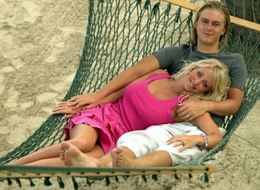
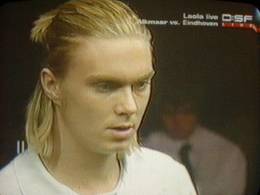
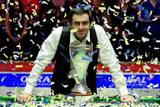
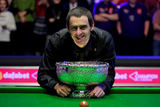
![Welsh Open[2].jpg](image.php?nid=1380&oid=3689245&width=160&height=174)
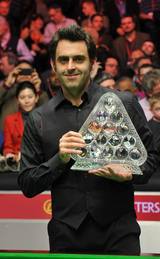

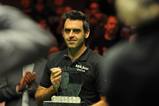
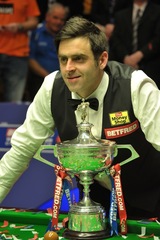
![Ronnie_OSullivan_Snooker_Champion_PTC7_2011[2].jpg](image.php?nid=1380&oid=2439625&width=160&height=151)
![topimage[2].jpg](image.php?nid=1380&oid=2498497&width=160&height=141)
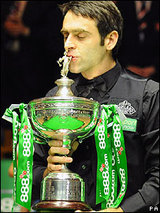
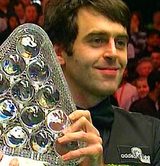
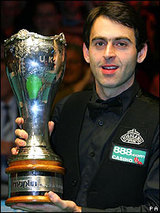

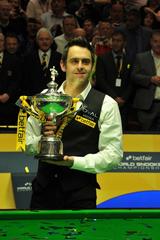
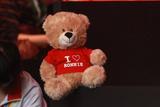
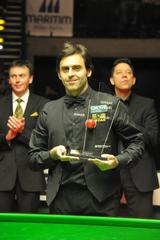
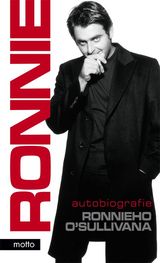
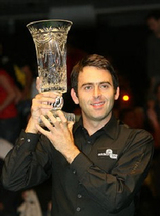
![08%20pls%20ronnie%20trophy[3].jpg](image.php?nid=1380&oid=1189442&width=160&height=198)
